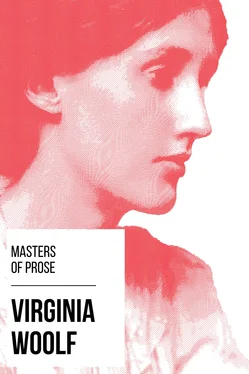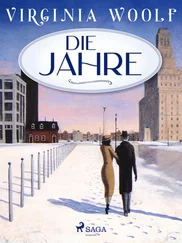As a woman I have no country. As a woman I want no country. As a woman, my country is the whole world.”
― Virginia Woof
Born on January 25, 1882, Adeline Virginia Stephen was raised in a remarkable household. Her father, Sir Leslie Stephen, was a historian and author, as well as one of the most prominent figures in the golden age of mountaineering. Woolf’s mother, Julia Prinsep Stephen, had been born in India and later served as a model for several Pre-Raphaelite painters.
As a young girl, Virginia was curious, light-hearted and playful. She started a family newspaper, the Hyde Park Gate News, to document her family’s humorous anecdotes. However, early traumas darkened her childhood, including being sexually abused by her half-brothers George and Gerald Duckworth, which she wrote about in her essays A Sketch of the Past and 22 Hyde Park Gate. In 1895, at the age of 13, she also had to cope with the sudden death of her mother from rheumatic fever, which led to her first mental breakdown, and the loss of her half-sister Stella, who had become the head of the household, two years later.
In 1905, she began writing professionally as a contributor for The Times Literary Supplement. Virginia met several members of the Bloomsbury Group, a circle of intellectuals and artists including the art critic Clive Bell, the novelist E.M. Forster, the painter Duncan Grant, the biographer Lytton Strachey, economist John Maynard Keynes and essayist Leonard Woolf. The group became famous in 1910 for the Dreadnought Hoax, a practical joke in which members of the group dressed up as a delegation of Ethiopian royals, including Virginia disguised as a bearded man, and successfully persuaded the English Royal Navy to show them their warship, the HMS Dreadnought. After the outrageous act, Leonard Woolf and Virginia became closer, and eventually they were married on August 10, 1912.
A year after the end of World War I, the Woolfs purchased Monk's House, a cottage in the village of Rodmell in 1919, and that same year Virginia published Night and Day, a novel set in Edwardian England. Her third novel Jacob's Room was published by Hogarth in 1922.
In 1925, Woolf received rave reviews for Mrs. Dalloway, her fourth novel. The mesmerizing story interweaved interior monologues and raised issues of feminism, mental illness and homosexuality in post-World War I England.
Unable to cope with her despair, Woolf pulled on her overcoat, filled its pockets with stones and walked into the River Ouse on March 28, 1941. As she waded into the water, the stream took her with it. The authorities found her body three weeks later. Leonard Woolf had her cremated and her remains were scattered at their home, Monk's House.
Although her popularity decreased after World War II, Woolf's work resonated again with a new generation of readers during the feminist movement of the 1970s. Woolf remains one of the most influential authors of the 21st century.
Many friends have helped me in writing this book. Some are dead and so illustrious that I scarcely dare name them, yet no one can read or write without being perpetually in the debt of Defoe, Sir Thomas Browne, Sterne, Sir Walter Scott, Lord Macaulay, Emily Bronte, De Quincey, and Walter Pater,--to name the first that come to mind. Others are alive, and though perhaps as illustrious in their own way, are less formidable for that very reason. I am specially indebted to Mr C.P. Sanger, without whose knowledge of the law of real property this book could never have been written. Mr Sydney-Turner's wide and peculiar erudition has saved me, I hope, some lamentable blunders. I have had the advantage--how great I alone can estimate--of Mr Arthur Waley's knowledge of Chinese. Madame Lopokova (Mrs J.M. Keynes) has been at hand to correct my Russian. To the unrivalled sympathy and imagination of Mr Roger Fry I owe whatever understanding of the art of painting I may possess. I have, I hope, profited in another department by the singularly penetrating, if severe, criticism of my nephew Mr Julian Bell. Miss M.K. Snowdon's indefatigable researches in the archives of Harrogate and Cheltenham were none the less arduous for being vain. Other friends have helped me in ways too various to specify. I must content myself with naming Mr Angus Davidson; Mrs Cartwright; Miss Janet Case; Lord Berners (whose knowledge of Elizabethan music has proved invaluable); Mr Francis Birrell; my brother, Dr Adrian Stephen; Mr F.L. Lucas; Mr and Mrs Desmond Maccarthy; that most inspiriting of critics, my brother-in-law, Mr Clive Bell; Mr G.H. Rylands; Lady Colefax; Miss Nellie Boxall; Mr J.M. Keynes; Mr Hugh Walpole; Miss Violet Dickinson; the Hon. Edward Sackville West; Mr and Mrs St. John Hutchinson; Mr Duncan Grant; Mr and Mrs Stephen Tomlin; Mr and Lady Ottoline Morrell; my mother-in-law, Mrs Sydney Woolf; Mr Osbert Sitwell; Madame Jacques Raverat; Colonel Cory Bell; Miss Valerie Taylor; Mr J.T. Sheppard; Mr and Mrs T.S. Eliot; Miss Ethel Sands; Miss Nan Hudson; my nephew Mr Quentin Bell (an old and valued collaborator in fiction); Mr Raymond Mortimer; Lady Gerald Wellesley; Mr Lytton Strachey; the Viscountess Cecil; Miss Hope Mirrlees; Mr E.M. Forster; the Hon. Harold Nicolson; and my sister, Vanessa Bell--but the list threatens to grow too long and is already far too distinguished. For while it rouses in me memories of the pleasantest kind it will inevitably wake expectations in the reader which the book itself can only disappoint. Therefore I will conclude by thanking the officials of the British Museum and Record Office for their wonted courtesy; my niece Miss Angelica Bell, for a service which none but she could have rendered; and my husband for the patience with which he has invariably helped my researches and for the profound historical knowledge to which these pages owe whatever degree of accuracy they may attain. Finally, I would thank, had I not lost his name and address, a gentleman in America, who has generously and gratuitously corrected the punctuation, the botany, the entomology, the geography, and the chronology of previous works of mine and will, I hope, not spare his services on the present occasion.
He--for there could be no doubt of his sex, though the fashion of the time did something to disguise it--was in the act of slicing at the head of a Moor which swung from the rafters. It was the colour of an old football, and more or less the shape of one, save for the sunken cheeks and a strand or two of coarse, dry hair, like the hair on a cocoanut. Orlando's father, or perhaps his grandfather, had struck it from the shoulders of a vast Pagan who had started up under the moon in the barbarian fields of Africa; and now it swung, gently, perpetually, in the breeze which never ceased blowing through the attic rooms of the gigantic house of the lord who had slain him.
Orlando's fathers had ridden in fields of asphodel, and stony fields, and fields watered by strange rivers, and they had struck many heads of many colours off many shoulders, and brought them back to hang from the rafters. So too would Orlando, he vowed. But since he was sixteen only, and too young to ride with them in Africa or France, he would steal away from his mother and the peacocks in the garden and go to his attic room and there lunge and plunge and slice the air with his blade. Sometimes he cut the cord so that the skull bumped on the floor and he had to string it up again, fastening it with some chivalry almost out of reach so that his enemy grinned at him through shrunk, black lips triumphantly. The skull swung to and fro, for the house, at the top of which he lived, was so vast that there seemed trapped in it the wind itself, blowing this way, blowing that way, winter and summer. The green arras with the hunters on it moved perpetually.
Читать дальше











